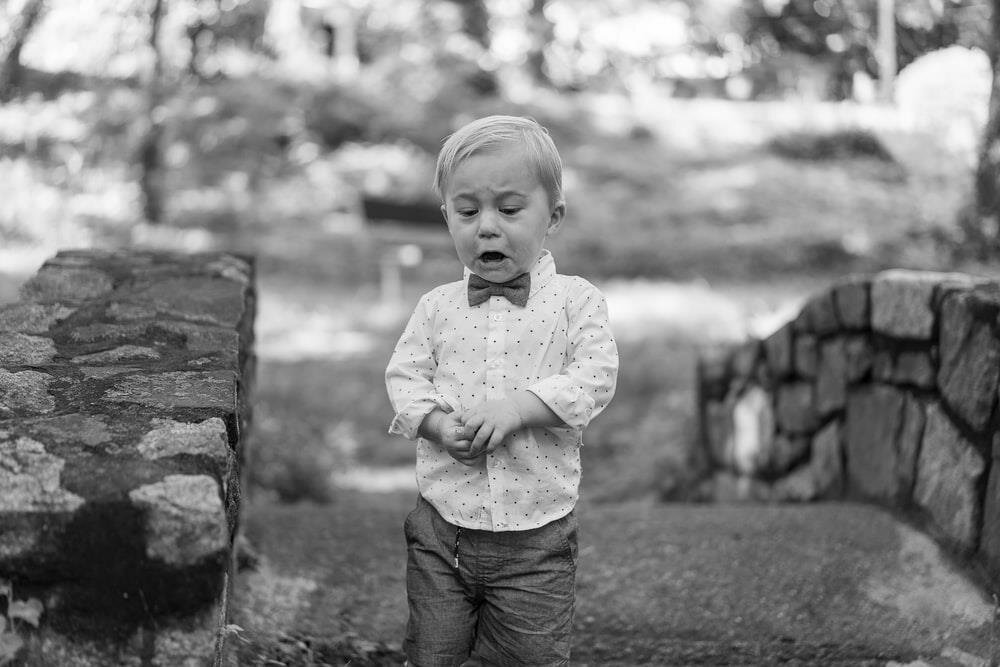By Deborah Russell PCC, ELI-MP
This common but penetrable fear is one that is close to my heart and that of many others I come across.
I was brought up with one parent in one country and one in another and although they adored each other and spent intermittent quality time together, they lived much of their lives apart. During my childhood, it was perfectly normal to me that they should live that way, it was indeed my norm, but when I explored this further, I realised it had its complexities. I work with people who find it difficult to connect in relationships either at home or at work, it is for those and others like them that I share this article.
I’m going to be unveiling here the signs of abandonment and why abandonment fears happen, the effects that they have on relationships and some helpful coping strategies.
A fear of abandonment is a complex phenomenon that can originate from a number of experiences that happened through one’s development, including loss or trauma. This fear has been studied from a variety of perspectives and written about in numerous contexts.
Although seemingly it is not an official phobia, the fear of abandonment is arguably one of the most common and most damaging fears of all. People with the fear of abandonment may tend to display behaviours and thought patterns that affect and may destroy their relationships.
Ultimately, maladaptive coping with this fear can result in the abandonment they dread becoming a reality and so this fear can be devastating. Understanding fear of abandonment is the first step toward resolving it.
Why does it happen?
Some of the theories that exist behind why fear of abandonment occurs, include:
- interruptions in cognitive and emotional development,
- challenges with past relationships,
- other problematic social and life experiences.
Our behaviours and actions in current relationships are all thought to be the result of old fears and learned concepts that took place in childhood. There are many other theories that attempt to understand the fear of abandonment.
Object Constancy
In object relations theory, an offshoot of Freudian analysis, an “object” in one’s mind is either a person, a part of a person, or something that somehow symbolizes one or the other. Object constancy is the concept that even when we are not in the physical presence of that person, our experience of them does not fundamentally change.
Infants learn that objects continue to exist even when they are not experienced directly.

Object constancy generally develops before the age of 3. As children grow and mature, the periods of separation lengthen and are often generated when the child goes to school or spends the weekend at a friend’s house etc. A child with good object constancy understands that important relationships are not damaged by time apart. A child who struggles with separation has not necessarily fully developed object constancy.
Object constancy may be interrupted by traumatic events. Death or divorce are common causes, but even situations that seem relatively unimportant to the adults involved, may affect developing this critical understanding in a child.
For example, children with parents in the army, or those who spend little time with their parents, and those with neglectful parents may also be at risk of interrupted object constancy.
Our own personal myth
We each have a personal myth – one that is not shared with others but deep within the core of our beings. According to Jung, this personal myth is made up of our interpretations from our unconscious and is a product from the filters of our own experiences.
From this perspective, the fear of abandonment is connected to these universal myths but varies in severity according to our own personal memories.

Previous Experience
By the time we are adults, most of us have been through some significant changes – death of a loved one, a friend moving away, the end of a relationship, a transition from school to college or to university, marriage and parenthood. Although most of us adapt to changing circumstances, it is quite possible to get stuck somewhere in the process of grieving what once was. If you have been through a sudden and traumatic abandonment, such as losing someone to violence or tragedy, you may be at increased risk for developing this fear.
Signs of a Fear of Abandonment
Millions of people struggle with this particular fear. In fact 1:10 people develop a phobia. In relationships where one or the other has a fear of abandonment we can expect to see some of the following behaviours:
Rapid attachment – even to unavailable partners or relationships.
Moving on quickly just to avoid over attachment.
Engaging in unwanted sex (this is common in women).
Struggling with being hard to please and nitpicky.
Feeling insecure and unworthy of love.
Jealousy of everyone you meet.
Feelings of general anxiety and/or depression.
Hypersensitivity to criticism.
Frequently engaging in self-blame.
Failing to fully commit and have had very few long-term relationships.
Aiming to please which leads to exhaustion.
Staying in relationships no matter how unhealthy they are.
Difficulty experiencing emotional intimacy.
Finding it hard to trust people.
Experiencing intense feelings of separation anxiety.
Tending to overthink things and work hard to figure out hidden meanings.
Containing a repressed anger and having control issues.
A ‘fight or flight’ tendency.
The effect of fear of abandonment on relationships
The fear of abandonment is highly personalized. Some people are afraid of losing a romantic partner. Others fear abandonment in other relationships that appear important.
To better explain how individuals with a fear of abandonment may navigate a relationship, here is an example of how a typical relationship may start and evolve.
This example is especially true for romantic relationships, but you may see similarities in close friendships as well.
Getting-to-Know-One-Another
At this point, you feel relatively safe. You are not yet emotionally invested in the other person. So you continue to live your life while enjoying time with your chosen person.
Honeymoon Phase
This phase occurs when you make the choice to commit. You are willing to overlook possible red or yellow flags because you just get along so well. You start spending a great deal of time with the other person; and you always enjoy yourself. You start to feel secure.

Real Relationship
The honeymoon phase cannot last forever. No matter how well two people get along, real life always intervenes. People get sick, have family problems, start working difficult hours, worry about money, and need to start with projects; time to get things done.
Although this is a very normal and positive step in a relationship, it can be terrifying for those with a fear of abandonment who may see it as a sign that the other person is pulling away. If you have this fear, you are probably battling with yourself and trying extremely hard not to express your worries for fear of appearing clingy.
The ‘blip’
People are human. They have moods and things on their minds. Regardless of how much they care for someone else, they cannot and should not be expected to always have that person at the forefront of their minds.
Especially once the honeymoon period is over, it is inevitable that a seeming blip will occur. This often takes the form of an unanswered text message, an unreturned phone call, or a request for a few days of alone time.
The reaction or behaviour
For those with a fear of abandonment, this is a turning point. If you have this fear, you are probably completely convinced that the blip is a sign that your partner no longer loves you. What happens next is almost entirely determined by the fear of abandonment, its severity, and the sufferer’s preferred coping style. (*MBTI type assessment will tell you much more about this)
Some people handle this by becoming clingy and demanding, insisting that their partner prove them love by jumping through hoops. Others run away, rejecting their partners before they are rejected. Still, others feel that the blip is their fault and attempt to transform themselves into the “perfect partner” in a quest to keep the other person from leaving.
In reality, the blip is most likely not a blip at all. Simply put, sometimes people just do things that their partners do not understand.
In a healthy relationship, the partner may recognize the situation for what it is- a normal reaction that has little or nothing to do with the relationship. Or they may feel upset by it but address it with either a calm discussion or a brief argument. Either way, a single perceived blip does not become a dominating influence on the partner’s feelings.
Partner’s Point of View
From the partner’s point of view, your sudden personality shift seems to come out of ‘left field’. If your partner does not suffer from a fear of abandonment, they probably do not have the slightest idea as to why their previously confident, laid-back partner is suddenly acting clingy and demanding, smothering them with attention, or pulling away altogether. If the partner has genuine difficulties in putting themselves in the shoes of another and is possibly missing some compassion, then the relationship will become challenging.
Similar to phobias, it’s impossible to simply talk or reason someone out of a fear of abandonment. No matter how many times your partner tries to reassure you, it will simply not be enough. Eventually, your behaviour patterns and inconsolable reactions could drive your partner away, leading to the very conclusion that you fear most.
Coping Strategies
Treating the fear
If your fear is mild and well-controlled, you may be able to handle it simply by becoming educated about your tendencies and learning new behaviour strategies. For most people, though, the fear of abandonment is rooted in deep-seated issues that are difficult to unravel alone.
– Professional assistance through Coaching or Therapy, is often required to work through this fear and profoundly change your thoughts and behaviours. (*Energy Leadership Coaching)
Build feeling of belonging
– Although treating the fear itself is critical, it is also essential to build a feeling of belonging. Rather than focusing all of your energy and devotion on a single partner, focus on building a community. No one person can solve all of our problems or meet all of our needs. But a solid group of several close friends can each play an important role in our lives.
Many people with a fear of abandonment state that they never felt like they had a “tribe” or a “pack” when they were growing up. Many were quite the loner at school/ college. Interestingly and for whatever reason, they always felt “other” or disconnected from those around them. But the saving grace here is that it’s never too late.
Surrounding yourself with like-minded souls
Whatever your current stage of life, it is important to surround yourself with other like-minded individuals. Make a list of your current hobbies, passions, and dreams. Then find others who share your interests. The world is a small one today and many good friends can be made through virtual programs and packages.
Find your passions and hobbies or dreams
While it is true that not everyone who shares an interest will become a close friend, hobbies and dreams are an excellent stepping-stone toward building a solid support network. Working on your passions also helps build self-confidence and the belief that you are strong enough to cope with whatever life throws your way.
Deborah Russell is a Professional Certified Coach PCC-ICF, ELI-MP, MBTI-MP.

Through her years of intense study and coaching work as well as her compassionate approach with clients all over the world and from all walks of life, she has grown a mission in supporting individuals with difficulties in challenging relationships. She is based in West of Paris and also works with TCB in Cambridge, UK as a Senior Consultant, engaging in solution focussed team performance and coaching for cultural change.
I’d like to acknowledge Lisa Fritscher and Steven Gans for their work, research and accuracy on the subject of fear of abandonment.
